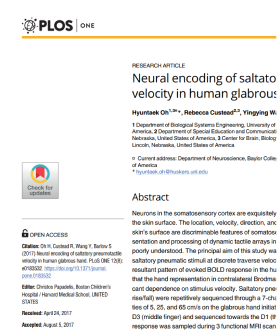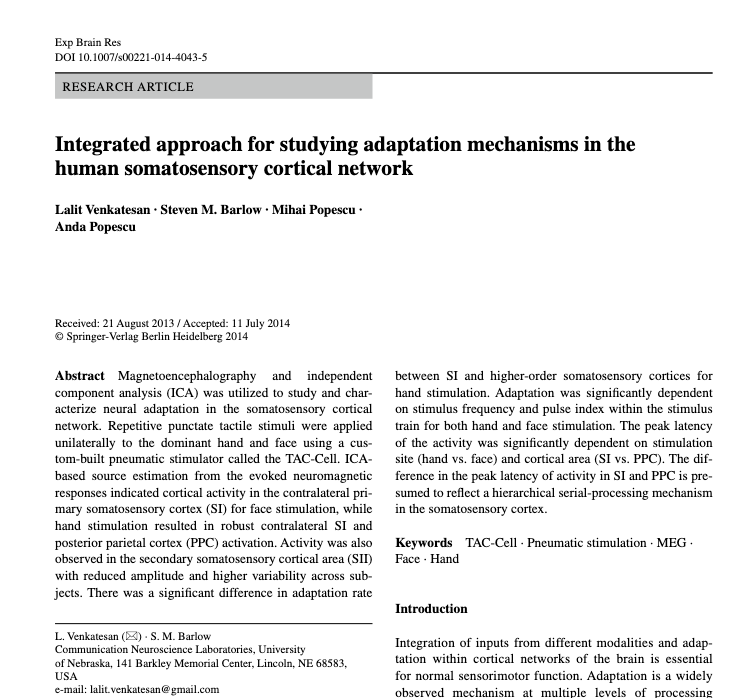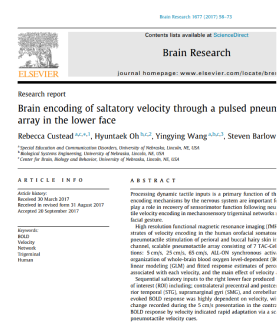The Galileo represents the first high-speed pneumatically-based somatosensory stimulation system suitable for functional brain mapping using unique spatial arrays of tactile cells placed on either glabrous and/or hairy skin to determine neural pathway integrity, adaptation, directional and velocity encoding, and cortical plasticity. The Galileo has significant potential as a neuro-therapeutic device to induce mechanisms of brain plasticity to improve human health and well-being following traumatic insults such as cerebrovascular stroke.”
Dr. Steven M. Barlow, Ph.D.
University of Nebraska, Lincoln
Corwin Moore Professor
Department of Special Education & Communication Disorders
Center for Brain, Biology and Behavior
Professor (affiliate) Dept. of Biological Systems Engineering
Director, Communication Neuroscience Laboratories
Higuchi Bioscience & ASHA Fellow
Corwin Moore Professor
Director, Communication Neuroscience Laboratories
The Galileo™ Somatosensory System

The Galileo™ is an 8-channel, pneumotactile, saltatory, evoked-response stimulation device. This distinctive research device is non-invasive, and extremely safe to use in any laboratory environment.
The Galileo™ can be used to activate populations of low-threshold, rapidly conducting mechanoreceptive afferents in soft tissues overlying joints and muscles. For example, the stimulus response is ideally suited for two of the most skilled sensorimotor systems of the human body (the orofacial and the glabrous surface of the hands).

The Problem

The Solution
Hardware
The Galileo™ Pneumotactile Stimulus System was designed with maximum controllability for research environments. The stimulus uses pneumatic pulses generated through a proprietary system, which creates incredibly fast-rising pressure waves. This punctate tactile stimulus is ideally suited for somatosensory stimulus.
Our engineers worked with leading brain researchers to develop the perfect waveform. Once the ideal stimulus was established, they expanded it into a highly customizable 8-channel system.
Software
The real power of the Galileo™ is the ability to control the system’s many features via our included proprietary software package. Since we know that the Galileo™ will be used in a wide variety of experimental applications, it was designed for maximum customization.
Researchers can design custom pulse sequences, each of which can use different pulse durations, start times, and cycle times. The sequences can be repeated infinitely, stratified, or run randomly to suit the experiment. Data are recorded to a text file.
Researchers running more complex experiments that require integration of multiple stimulus devices, behavioral triggers, or sensory inputs can use serial commands via USB 2.0 to send instructions to the Galileo™. Because the pulse delay times are constant, the calculations and programming required are minimal. The Galileo™ Pnuemotactile Tactile Stimulus System can be controlled by any software package capable of generating serial commands. The Galileo™ also accepts per-channel 5V TTL input triggers to do real-time triggering in event-based and cognitive behavioral study environments











